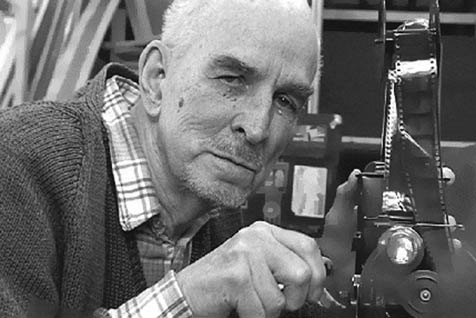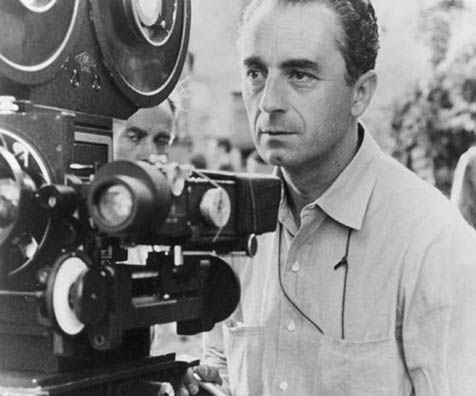Filmic Rites of Passage
Losing Bergman and Antonioni on the same day.
FADE TO BLACK: Losing both Ingmar Bergman and Michelangelo Antonioni on the same midsummer’s day came as a stunning one-two punch, a cruel twist of fate. On further reflection, though, maybe it carries a beautifully poetic resonance, having to do with a rite of passage, and the waning of an era. Both filmmakers belong to a hyper-elite class of directors whose artistic voices are so singular and so influential that they seem less like filmmakers than 20th-century sages who helped define, reflect, and alter our consciousness, not to mention the prospect of film as a serious art form.

The list of visionary directors identifiable on a last-name only basis is surprisingly short: Bergman, Antonioni, Fellini, Godard, Hitchcock, maybe Kubrick. And who among the American directors? Welles? The lack of an American director with a powerful enough oeuvre and impact may relate to the very nature of commercial seduction and artistic compromise implicit in the Hollywood game, compared to which Bergman and Antonioni were antidotes and aesthetes.
Bergman’s elegant blend of introspective gloom and quiet affirmation, with tendrils of mythology, religious inquiry, and existential modernity, has never been equaled. His filmography includes some of the greatest movies ever made, including Wild Strawberries, Scenes from a Marriage, Cries and Whispers, and Persona, with its famous and joyously jarring fourth wall effect of a scene resembling a projector mishap and broken print occurring in mid-film, and mid-angst. It’s only a movie, it turns out, as Bergman reminds us, wielding his underappreciated lightness and humor amidst his through-a-glass-darkly business-at-hand.

Antonioni’s well-tooled ambiguity actually colored our perception of reality. Think of the anti-sentimental, untidy mysteries of L’Avventura, or of Blow Up, with its hip mix of a guitar-bashing Jeff Beck, a garment-shedding Jane Birkin, and the fatalistic shrug of its mimed tennis game at the end. Or think of The Passenger, in which the final, extended shot outside a hotel leaves us in a hypnotic lurch as to the destiny of the anti-hero played by Jack Nicholson. Nicholson’s character has assumed someone else’s identity in search of escape from his past life, but he finds an even sorrier fate in his borrowed persona. It’s a typical Antonioni twist, told in languid, time-expanding long takes, asking questions of our basic assumptions as humans.
Cinematic question-askers are a rare breed now, although the imprint of Bergman and Antonioni hovers over cinema, and always will.
SQUEEZING OUT SWINGING SPARKS: Jazz fans who reflexively smirk at the phrase “jazz accordion” are actually blessed: They may be in for an awakening. Accordion jazz, while still a subcultural niche within jazz, can be uniquely exciting. The blend of a thick, sustaining tone-kinfolk to reed instruments like the mighty saxophone-plus the capacity for chords and the bellows-controlled “breathing” patterns makes the instrument surprisingly well-suited to jazz, though great players have been few and far between.
Art van Damme (b. 1920) was a reigning jazz accordion king, who produced his share of “lounge” music, but also dished out fluid fire in swing and bebop directions. Of late, the dazzling and soulful French player Richard Galliano has assumed a lofty position as possibly the best-known jazz accordion virtuoso around, and in the margins are players like Norway’s painterly Frode Haltli.
One of the genre’s best westerners, Frank Marocco, is just down the road from us, and he makes a rare Santa Barbara visit to SOhO on Monday. Marocco has graced our town before, performing at the great old club Joseppi’s (owner Joseppi Scozzaro himself is a fine accordionist), and also in the fleeting jazz experiment of Rickie Lee Jones‘s early ’90s Pop Pop-era group, which stopped in at the Arlington. He butters his bread with all manner of studio work in Los Angeles, but, as with many session players, jazz is obviously running hot in his veins even if it’s not fueling his pension. This show ranks high on the check-it-out scale, especially for fans of the grand, underrated instrument and fans of jazz well-swung.



